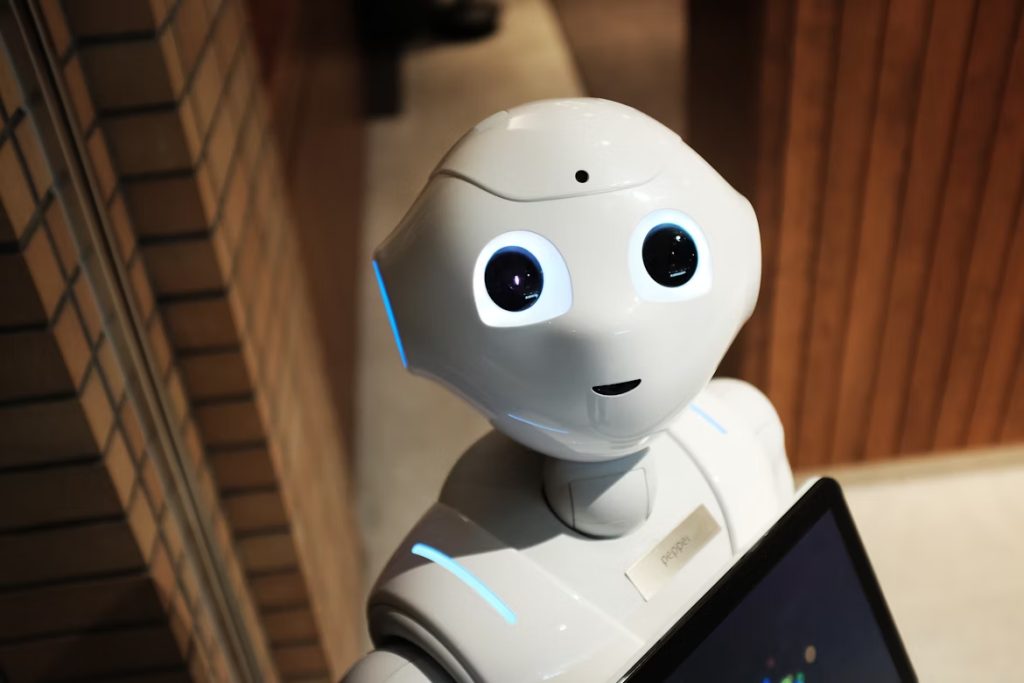Artificial intelligence is no longer merely an instrument of modernity, but is now a full-scale companion in learning and self-growth. The current AI assistants not only answer questions; they also assist us in thinking, organizing the knowledge we have acquired, and developing skills.
Modern AI task automation is the core of this revolution that is transforming the established structure of learning, work, and making crucial, radical decisions. Thus, it will be practical and engaging to acquire more information about it. Maybe when you do so, you yourself will conclude that you have had enough and it is time to get your own AI assistant.
Rapid Transformation: From Data Search to Understanding Knowledge
Previously, the basis of learning was the accumulation of information. Now, the most important skill is the ability to interpret and apply acquired knowledge. Thanks to AI, agents have significantly shortened the path from a search query to understanding it. These assistants are capable of:
- Analyzing large volumes of information
- Adapting to the user’s thinking style
- Generating personalized explanations
A modern student who asks “What is an AI agent?” no longer spends hours searching for the necessary literature. Instead, with Ask AI Questions, they receive a precise selection of information, analyze all arguments, suggest a structure for writing an essay, and model possible conclusions based on the generated work.
All this has led to a significant shift from simply memorizing and rote learning of information to understanding it using advanced algorithms.
Personalized Real-Time Learning
One of the most significant achievements of modern AI agents is the ability to personalize the educational experience. Specialized systems are capable of performing several essential and useful tasks:
- Tracking user progress
- Identifying weaknesses in understanding the material
- Suggesting exercises and tests as needed
AI is becoming a powerful and intelligent digital mentor. It is ideally able to adapt to the learning pace of a particular user, consider their emotional state, and effectively stimulate them. In other words, AI is used not simply to test knowledge. It is a powerful tool for learning through dialogue. The assistant explains the material clearly and step-by-step.
This new approach to learning transforms standard educational courses into dynamic and intellectual conversations.
Automation of Routine Tasks
A unique paradox of the traditional learning format is that the more tasks we need to complete, the less time we have for reflection. AI assistants are ideally suited to this problem. In fact, they were created to solve it.
Using the best AI agent, you can automate a number of processes:
- Lecture note-taking
- Test and question generation
- Student feedback analysis
- Data formatting and structuring
All this frees researchers and teachers from a number of routine tasks, allowing them to focus on creative processes, innovation, and continuous learning through actively learning with tools like getrecall.ai.
- Real-time content summarization
- Personalized learning assistance
- Note-taking automation
- Knowledge management & organization
- Task and workflow integration
- Active recall for effective memory retention
- Tracking user progress and performance
 Learning on Demand as a New Format of Self-Education
Learning on Demand as a New Format of Self-Education
The younger generation of students and professionals prefers to learn as needed rather than following a pre-defined and fixed curriculum. AI assistants are a perfect fit for this philosophy.
Modern AI-powered platforms enable instant learning ecosystems. They can explain concepts in the context of specific tasks, provide useful links with examples, offer interactive simulations, and track progress as you learn.
It is thanks to AI tools that we can transform standard self-education into a personalized, continuous process where knowledge emerges precisely when it’s needed.
AI – A Mirror of Thought
The uniqueness of AI agents is that they are designed for more than just learning. These solutions can act as a reflection of our thinking habits. When interacting with AI, users formulate their thoughts more clearly, ask structured questions, and clarify necessary concepts.
Therefore, AI can confidently be called a tool for metacognition, the essence of which is awareness of how we think. Users are not forced into ready-made answers. Instead, AI helps them identify their own knowledge gaps and develop effective reasoning.
Today, AI dialogues are actively used in universities, companies, and large corporations as cognitive training. This allows for more effective development of critical and analytical thinking in students and employees.
Digital Responsibility and New Ethical Challenges
Like any powerful technology, every type of AI agent carries certain risks. The main ones are rightly considered to be dependence on algorithms, distortion of sources, and a reduction in independent thinking.
The user sees that the AI generates answers very well and accurately. This creates a strong temptation to accept this result without prior verification. Therefore, when training with AI assistants, it is crucial not only to rely on their capabilities but also to understand some of their limitations.
For example, AIs are not always neutral; they can create convincing but false or fictitious facts, and also require constant correction and oversight by humans.
Final Thoughts
AI task automation already has an influence on the quality of education: rote learning gives way to intelligent cooperation between machines and people. These technologies allow us to learn quicker, more profoundly, and consciously.
However, to make the correct use of them, we should formulate critical thinking and digital responsibility. In the end, the choice as to what and how he or she learns is still made by the individual to this day, despite the artificial intelligence.

 source
source Learning on Demand as a New Format of Self-Education
Learning on Demand as a New Format of Self-Education



